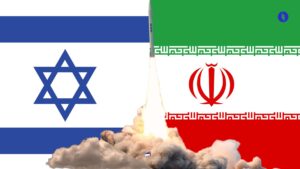Hamas – considered a terrorist organisation in several countries – attacked Israel early Saturday morning, on the Jewish holiday of Simchat Torah.
In a multi-domain operation (land, air, sea), the group punched through Israel’s smart fence and poured into the country on motorbikes, pickup trucks, speedboats and motorised paragliders, penetrating up to 30km into Israel and gaining entry into at least four Israeli military bases.
The group stormed the Nova music festival 5km from Gaza, shooting dead at least 260 revellers, while Hamas units went on to roam freely through the country’s southern communities, killing and kidnapping Israelis. There have been early reports of beheadings and sexual violence.
Stay on top of your world from inside your inbox.
Subscribe for free today and receive way much more insights.
Trusted by 134,000+ subscribers
No spam. No noise. Unsubscribe any time.
Hamas has relocated some hostages – including civilians and military personnel – back to Gaza’s infamous network of underground tunnels.
Hamas says its goal is to “liberate our land, our holy places, our Al-Asqsa Mosque, and our prisoners.”
For its part, Israel says its death toll has passed 700, in “the worst massacre of innocent civilians in Israel’s history.”
The country has declared war on Hamas, calling up hundreds of thousands of reservists, and conducting retaliatory bombardments in Gaza. Authorities in Gaza say more than 300 people have been killed there so far.
In parallel, Israel is amassing troops ahead of an anticipated ground invasion of Gaza, though a formal government order hasn’t emerged at this stage.
How has the world reacted?
- The US, the EU, the UK, France, India, and others have variously condemned Hamas and affirmed Israel’s right to defend itself
- China and Russia each called for restraint and a resumption of negotiations to establish a Palestinian state, and
- Others like Iraq, Qatar, Saudi Arabia, Malaysia, and Indonesia have attributed blame to Israel and its treatment of the Palestinians
Egypt is trying to mediate, warning of a possible broader regional conflict.
Meanwhile Iran has “congratulated” the Palestinian people, Hamas has reportedly said Iran backed the attack, and the Wall Street Journal is reporting that Iran helped plan it and gave the final green light. Initial comments from the US suggest Washington is still investigating Iran’s role.
Intrigue’s take: We wrote last week that the global order is fraying, creating space for destructive forces to take advantage. It reminds us of something a Western ambassador to Israel once told us in our former lives as diplomats: “deep down, people don’t want peace; they want to win.”
His comment seemed cynical back then, but more plausible right now.
Some thoughts, in no particular order:
- Israel has long had the region’s most formidable intel services, but its failure to prevent this attack is nothing short of catastrophic.
- In 48 hours, Hamas seems to have brought about something that’s rarely been seen in Israel: cross-party unity.
- Egypt, Jordan, the UAE and Bahrain want to curb escalation to keep their own normalisation of Israel ties sustainable domestically.
- For similar reasons, this attack probably ends Saudi-Israeli talks for now, to the benefit of Iran. But if there’s genuine Saudi interest, this attack needn’t rule out normalisation with Israel in the long term.
- For some Palestinians, these events will bolster the legitimacy of Hamas as the ‘most effective’ leaders of the Palestinian cause, at the expense of the ailing Palestinian Authority in the West Bank.
- And it’s hard to see Hamas surviving (in its current form) Israeli retaliation, but history suggests new leaders will emerge.
Also worth noting:
- Hamas laid out its objectives in a 2017 policy. The earlier Hamas charter of 1988 said Islam would “obliterate” Israel.
- The International Court of Justice found in 2004 that an Israeli barrier was illegal, and that Israeli settlements had been “established in breach of international law“. Israel rejected that finding.
- Israel exchanged 1,027 Palestinian prisoners for a single Israeli soldier (Gilad Shalit) in 2011, after five years in Hamas captivity.








